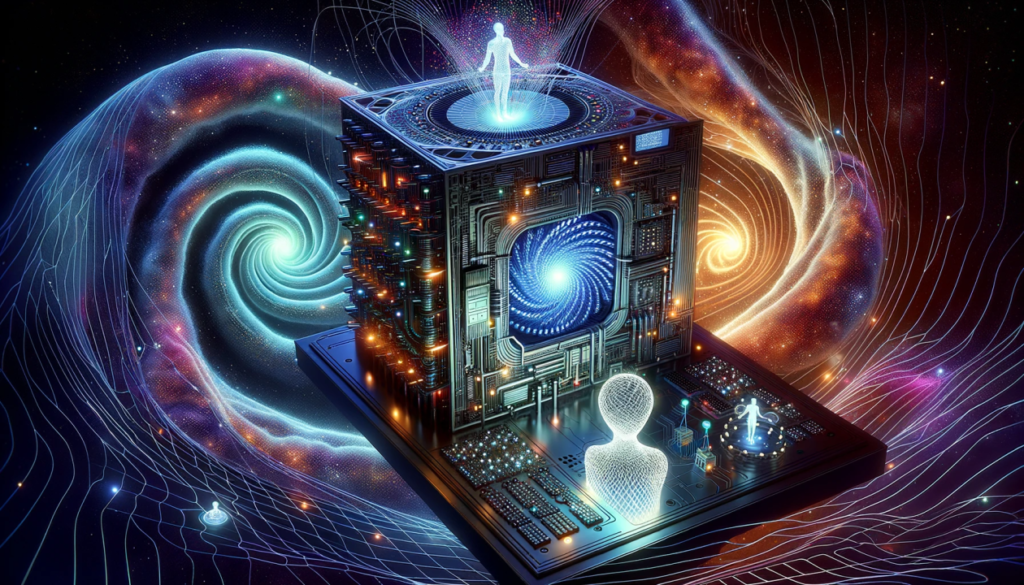
Time Travel
The concept of time travel has captivated humanity for centuries, igniting our imaginations with possibilities and fueling countless works of fiction. From H.G. Walls’s iconic time machine to the flashy DeLorean in the “Back to the Future” franchise, time travel has become a cultural touchstone, a symbol of our enduring fascination with the past, future, and the very nature of time itself.
However, the question remains: is time travel a mere fantasy, or could it hold a sliver of scientific plausibility?
The Realm of Science Fiction:
In the realm of science fiction, time travel often involves fantastical devices like time machines, wormholes, or even time portals. These fictional methods often bypass the complexities of real-world physics and delve into the realm of the fantastical.
Popular narratives explore the consequences of altering the past, the butterfly effect causing ripples of change that can drastically alter the present and future. Stories explore paradoxes, like the grandfather paradox, where a time traveler accidentally prevents their own grandparent from meeting, creating a logical impossibility.
While these fictional explorations are captivating, they raise questions about the feasibility of such concepts within the framework of established scientific principles.

The Scientific Lens:
While fictional portrayals offer a thrilling escape, the scientific feasibility of time travel is a complex and ongoing discussion. According to our current understanding of physics, time travel to the past is fraught with theoretical challenges.
One prominent theory, Einstein’s theory of special relativity, suggests that time is not absolute but relative. It posits that time slows down for objects traveling near the speed of light. This means that astronauts traveling on long space voyages at high speeds would experience time slightly slower than those on Earth, technically “traveling” into the future. However, this is not traditional time travel as it doesn’t involve going back to the past or instantly jumping through time.
Another theoretical possibility involves the existence of wormholes, hypothetical tunnels connecting two different points in spacetime. These could potentially allow for travel between distant locations or even different points in time. However, the existence of wormholes remains entirely theoretical, and the immense gravitational forces involved are thought to be insurmountable with our current technological understanding.
While the possibility of traveling to the past remains elusive, forward time travel might hold some merit. The aforementioned theory of special relativity, coupled with the concept of time dilation, suggests that individuals in strong gravitational fields or traveling at incredibly high speeds would experience time at a slower pace compared to others in weaker gravitational fields or traveling slower. This could, in theory, result in a form of “forward time travel” where individuals experience time differently compared to others.
The Philosophical Labyrinth:
Beyond the scientific complexities, time travel raises profound philosophical questions. The idea of altering the past throws into question concepts like free will, causality, and the very nature of reality. Could changing one event in the past create a ripple effect, fundamentally altering the present and future in unforeseen ways? Would such actions violate the principle of causality, the idea that every event has a cause?
Furthermore, the existence of time travel raises ontological questions about the nature of the self. If one were to travel back in time and encounter a younger version of themselves, would it be the same person? These questions delve into the depths of human identity and the nature of our existence across time.
The Enduring Fascination:
Despite the scientific and philosophical challenges, the allure of time travel continues to hold a powerful grip on our imaginations. It offers a chance to explore the “what if” scenarios, to revisit the past, learn from past mistakes, and potentially even glimpse the future.
The potential to witness historical events firsthand, to connect with past generations, or to learn from the mistakes of the past holds undeniable appeal. However, it’s crucial to remember that these remain hypothetical scenarios, and the potential consequences of altering the past remain largely unknown.
The Road Ahead:
While the scientific feasibility of time travel to the past remains uncertain, ongoing research in physics and cosmology continues to explore the nature of spacetime and the possibility of manipulating its fabric. As our understanding of the universe deepens, who knows what future discoveries might hold?
In the meantime, the concept of time travel serves as a powerful lens through which to examine our relationship with time, the past, the present, and the future. It compels us to question our place in the universe and the very fabric of reality, reminding us that the realm of the unknown continues to hold immense potential for discovery and wonder.



